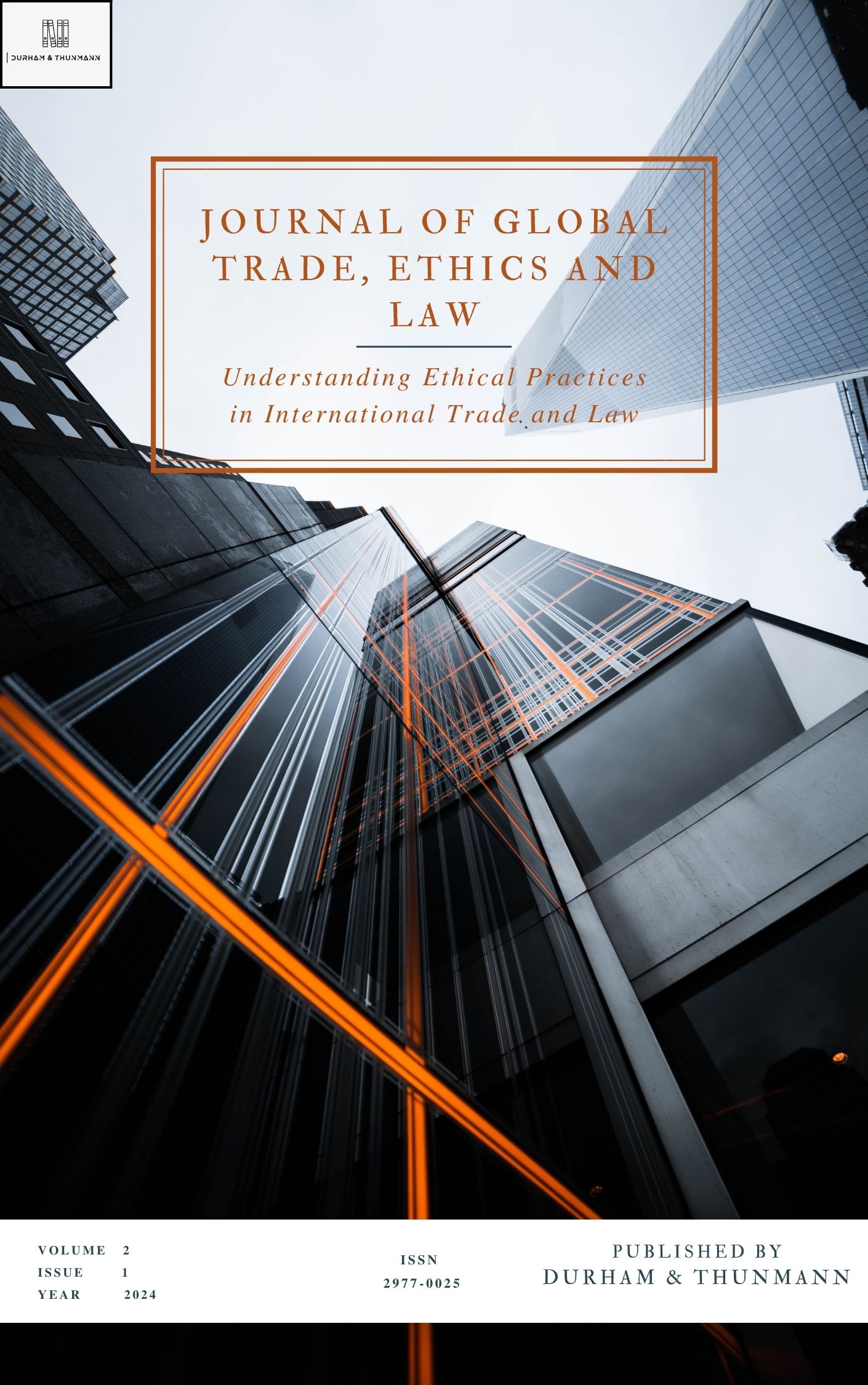
Published 2024-09-02
Keywords
- Bitcoin,
- Australia,
- Canada,
- U.K.,
- Europe
- Dollars,
- Pounds,
- Euros ...More
Copyright (c) 2024 Journal of Global Trade, Ethics and Law

This work is licensed under a Creative Commons Attribution 4.0 International License.
How to Cite
Abstract
Much of the research relating to the impact on Bitcoin, of the COVID-19 pandemic focuses on the United States (US) market using Bitcoin prices in US dollars, but this is a market not open to a large proportion of the world’s population who must trade Bitcoin in their local currency. The aim here is to compare Bitcoin trading behaviour pre- and post-COVID-19 in four currencies, the Australian dollar, the Canadian dollar, the UK pound and the European euro, to see if there is any consistency across currencies. The Bitcoin price may be universal but Bitcoin trading in local currencies can reflect local conditions. What becomes obvious is that when comparing across currencies, there is no consistent pattern. No two currencies are the same. The pre-COVID-19 period dominates in the Australian dollar market. The UK pound is similar except for transactions per day which is higher post-COVID-19. In the Canadian dollar and euro markets neither period dominates with each currency finding ‘not significantly different’ for a number of metrics. Surprisingly, there is not even any consensus with regard to the Bitcoin price which decreases in the Australian dollar and the UK pound markets in the post-COVID-19 period while this period sees an increase in the Bitcoin price in the Canadian dollar and euro markets. Consequently, observing Bitcoin trading behaviour in one currency does not indicate patterns of trade in another currency. This is particularly evident when comparing Bitcoin trading across countries with very different economic conditions, during a period of worldwide economic uncertainty as the COVID-19 pandemic continues to take a toll on local economies.
Downloads
References
- Thomas Conlon, Shaen Corbet, and Richard J. McGee, “Are Cryptocurrencies a Safe Haven for Equity Markets? An International Perspective From the COVID-19 Pandemic,” Research in International Business and Finance 54 (December 1, 2020): 101248, https://doi.org/10.1016/j.ribaf.2020.101248. DOI: https://doi.org/10.1016/j.ribaf.2020.101248
- Thomas Conlon and Richard McGee, “Safe Haven or Risky Hazard? Bitcoin During the Covid-19 Bear Market,” Finance Research Letters 35 (July 1, 2020): 101607, https://doi.org/10.1016/j.frl.2020.101607. DOI: https://doi.org/10.1016/j.frl.2020.101607
- Klaus Grobys, “When Bitcoin Has the Flu: On Bitcoin’s Performance to Hedge Equity Risk in the Early Wake of the COVID-19 Outbreak,” Applied Economics Letters 28, no. 10 (June 26, 2020): 860–65, https://doi.org/10.1080/13504851.2020.1784380. DOI: https://doi.org/10.1080/13504851.2020.1784380
- Jackie Johnson, “When Bitcoin Caught COVID-19,” SSRN Electronic Journal, January 1, 2020a, https://doi.org/10.2139/ssrn.3614922. DOI: https://doi.org/10.2139/ssrn.3614922
- Jackie Johnson, “Bitcoin’s Intraday Price Dynamics: Pre and Post COVID-19,” SSRN Electronic Journal, January 1, 2020b, https://doi.org/10.2139/ssrn.3650673. DOI: https://doi.org/10.2139/ssrn.3650673
- Satoshi Nakamoto, Bitcoin, a Peer-to-peer Electronic Cash System, 2008.
